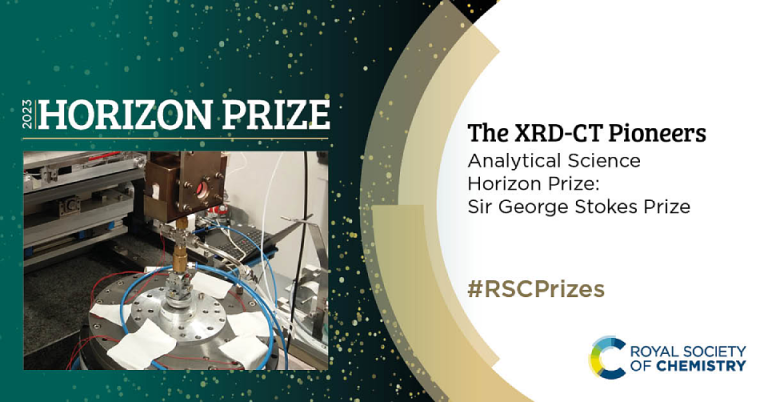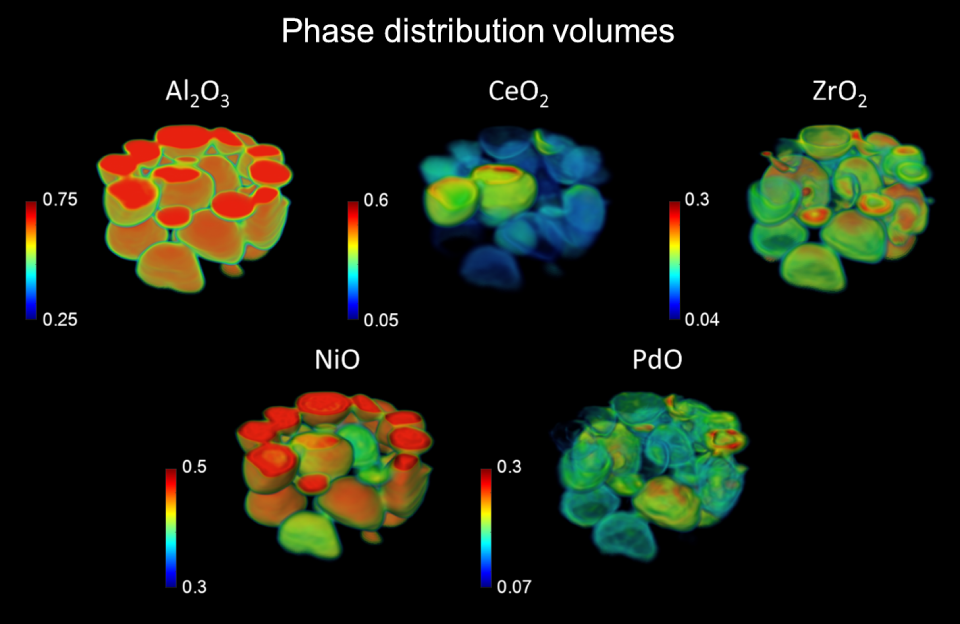Finden Ltd, start-up from UCL, wins prestigious award for pioneering new chemical imaging methods
20 June 2023
The team has been named the winner of the Royal Society of Chemistry’s (RSC) prestigious Analytical Science Horizon Prize: Sir George Stokes Prize, an award celebrating ground-breaking developments which push the boundaries of science.

Finden Ltd, a British scientific service provider, co-founded in 2012 by Professor Andrew Beale (UCL Chemistry), has driven the development of X-ray diffraction computed tomography (XRD-CT) to provide high-quality data and a more complete understanding of how materials work.
The XRD-CT pioneers won the accolade for a project which involved significant advancements in chemical imaging methods that will help to develop better materials for the medical field.
XRD-CT, a technique introduced in 1991, is an advanced method for analysing the composition of solid objects. Unlike traditional X-ray imaging, it provides a diffraction pattern for each pixel in the data, allowing researchers to understand the structure of materials.
This offers valuable insights into the micro and nanostructure that determine material properties. By using XRD-CT, scientists have gained a new understanding of how materials behave in real-time during processes. Additionally, this technique has become more accessible to the scientific community, allowing more researchers to benefit from its capabilities.

"With this technique, we see things that we didn't know were important before we performed a measurement. This allows us a more complete understanding of what makes a material work or fail and this is the first step in developing better materials for the future. Although the capabilities we have developed have largely been demonstrated in materials science, they have also been shown to yield new insights in the life sciences as well.
“We hope that eventually, these techniques will move from particle accelerators into the laboratory, and ultimately into the medical field. There, they have the potential to bring about improvements in the health sector, as well as the performance of materials.”
Dr Helen Pain, Chief Executive of the Royal Society of Chemistry, said: “The Horizon Prizes recognise brilliant teams and collaborations who are opening new directions and possibilities in their field, by combining their diversity of thought, experience and skills, to deliver scientific developments for the benefit of all of us.
“The work of the XRD-CT pioneers is a fantastic example of why we celebrate great science; not only because of how they have expanded our understanding of the world around us, but also because of the incredible contribution they make to society as a whole. We are very proud to recognise their work.”
The Royal Society of Chemistry’s prizes have recognised excellence in the chemical sciences for more than 150 years. In 2019, the organisation announced the biggest overhaul of this portfolio in its history, designed to better reflect modern scientific work and culture.
The Horizon Prizes celebrate the most exciting, contemporary chemical science at the cutting edge of research and innovation.
Links
- Original article on the RSC website
- More about Finden Ltd
- Professor Andrew Beale’s academic profile
- UCL Chemistry
- London Centre for Nanotechnology
Images
- Top: Graphic detailing the prize awarded to Finden Ltd. Credit: Royal Society of Chemistry.
- Bottom: Five-dimensional (spatial, time and chemical) imaging of a catalyst performing methane partial oxidation. Credit: Finden Ltd.
Media Contact
Ingrida Bertasiute
i.bertasiute [at] ucl.ac.uk
 Close
Close

